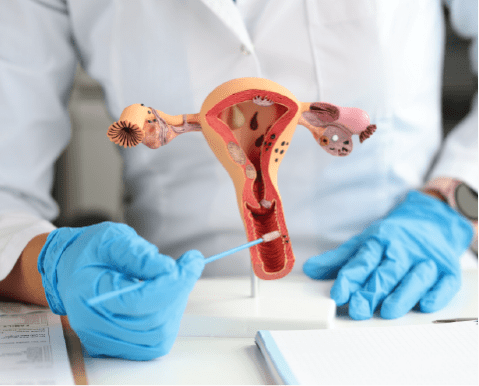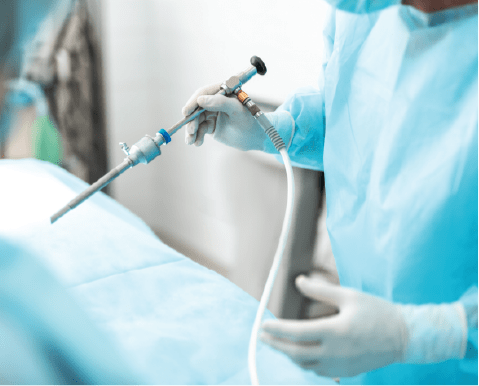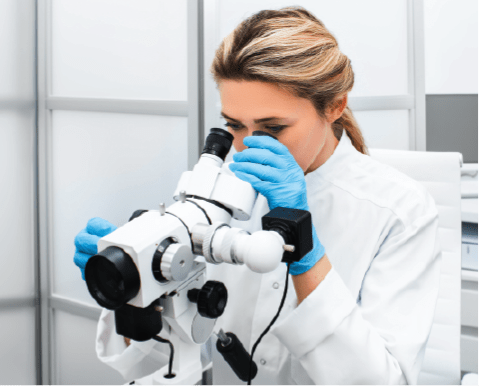Although gynaecological conditions are very common, affecting up to 95% of all women at least once or twice in their lifetime, this does not mean you have to suffer from their impact on your physical, mental and emotional health.
Dr Siva has many surgical and medical intervention options at his disposal, designed to relieve, and in many cases cure, symptoms of a wide range of gynaecological conditions, with advances in medicines, technologies and surgical techniques delivering better outcomes with few side effects and faster recovery times.
These are some of the main gynaecological conditions we treat. This list is not exhaustive, so if you have another gynaecological condition you might need help with, please get in touch with Dr Siva’s rooms. If it’s a gynaecological condition you need help with that we don’t treat, we can always refer you to a trusted colleague with the appropriate level of expertise.
Gynaecological services and conditions we treat
Dr Siva’s specialised areas of interest and treatmentment expertise include:
- Abnormal cervical screening test results/pap smears
- Abnormal vaginal bleeding
- Birth control, contraceptive advice and services
- Cervical screening test abnormalities
- Ectopic pregnancy
- Endometriosis and chronic pelvic pain
- Fertility problems
- Heavy and painful periods
- Menopause symptoms and problems
- Menstrual pain
- Ovarian cysts and pelvic masses
- Painful sexual intercourse
- Pelvic adhesions following surgery or infection
- Pelvic infections
- Polycystic Ovarian Syndrome
- Polyps of the uterus and cervical polyps
- Uterine fibroids
Heavy periods and menstrual disorders
When irregular periods or painful and heavy periods (menorrhagia) are negatively affecting your quality of life and ability to work, study, parent or socialise, it’s time to seek professional help from an experienced gynaecologist.
Menstrual disorders symptoms
- Heavy or prolonged menstrual bleeding
- Bleeding with intercourse
- Bleeding between periods
- Painful cramping
Menstrual disorders treatments
Whether you have medical or surgical treatment will depend on the cause and extent of your menstrual disorder. Treatments may include:
- Non-steroid anti-inflammatories
- Prescription pills, vaginal ring or patch
- Progesterone implant
- Progesterone intrauterine devices (IUDs)
- NovaSure endometrial ablation
- Mirena insertion
- Hysteroscopic endometrial resection
- Hysteroscopic fibroid resection
- Other surgical options include hysterectomy
Uterine Fibroids
Up to 40% of women have these benign (non-cancerous) growths of the muscle of your uterus without any symptoms at all. Sometimes fibroids are only detected during a routine gynaecological check up.
Fibroid symptoms
Larger fibroids or fibroids growing on a particular part of your uterus, can present one or more of the following symptoms:
- Constipation
- Fatigue
- Frequent urination
- Headaches
- Heavy and painful periods
- Pain during sex
- Pain or pressure in the pelvic area
- Spotting between periods
- Swelling in your lower abdomen
Fibroid treatments
Fibroid treatment will depend on the size and severity of your fibroids, with treatment options including:
- Monitoring your fibroids
- Hormone-based medications to control bleeding
- GnRh analogues to shrink the size of your fibroids
- Myomectomy
- Hysteroscopy and/or a D and C (Dilation and Curettage)
- MRI guided Focused Ultrasound (MRgFUS) to destroy the fibroid cells
- Laparoscopic, vaginal or abdominal hysterectomy
Ovarian Cysts
Ovarian cysts are a fluid-filled (occasionally solid) sac that grows within your ovary. Ovarian cysts are very common, usually benign (non-cancerous) and do not usually cause any symptoms.
While most ovarian cysts occur naturally and go away in a few months without needing any treatment, larger ovarian cysts will need treatment.
Ovarian cysts symptoms
- Pelvic pain
- Fullness, pressure or heaviness in your belly
- Bloating
- Pain during intercourse
- Difficulty emptying your bowels
- Frequent urination
- Heavy, irregular or lighter periods
- Feeling full after only eating a little
Ovarian cysts treatment
- Laparoscopy keyhole surgery
- A laparotomy – abdominal surgery for larger or cancerous ovarian cysts
Endometriosis
This progressive and chronic condition occurs when cells similar to those that line your uterus are found in other parts of the body, causing the surrounding tissue to become irritated and develop scar tissue and adhesions. When endometriosis affects the womb, it is called Adenomyosis.
Endometriosis symptoms
- Pain during your periods
- Pain during intercourse
- Having difficulty falling pregnant
- Heavy or irregular menstrual bleeding
- Bleeding from the bladder or bowel
- Changes to frequency of urination and bowel motions
Endometriosis treatment
- Anti-inflammatory drugs or pain-relief medication
- The combined oral contraceptive pill
- Progestin tablets, implants, injections or an intrauterine device (IUD).
- Laparoscopic keyhole surgery
- Hysterectomy (for Adenomyosis)
Pelvic Organ Prolapse
Pelvic organ prolapse (POP) occurs when the connective tissue in your pelvic floor becomes weaker, allowing one or more of the pelvic organs (the bladder, uterus, bowel and/or rectum) to slip down. This causes the top of your vagina to weaken, fall into your vaginal canal and sometimes even bulge out.
Pelvic Organ Prolapse symptoms
Pelvic organ prolapse symptoms include:
- Heaviness in your pelvic area and genital area
- Discomfort inside your vagina
- A bulge or lump in or coming out of your vagina
- Discomfort or numbness during intercourse
- A feeling of something coming down into your vagina
- Urinary changes, such as feeling like your bladder is not emptying fully, needing to go to the toilet more often, or urinary incontinence when you cough, sneeze or exercise
Pelvic Organ Prolapse treatment
- Pelvic floor exercises
- Seeing a pelvic floor physiotherapist
- Vaginal pessary insertion
- Colporrhaphy – vaginal wall repair
- Hysterectomy
- Sacrocolpopexy
- Colpocleisis
- Manchester Operation
ANY FURTHER QUESTIONS?
Please feel free to get in touch with Dr Siva’s rooms via email ipswichgyn@gmail.com or call (07) 3816 9189
for any further questions about our appointments, fees or anything else.





